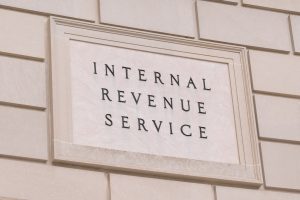
In recent weeks, news outlets have been buzzing with reports of the IRS targeting wealthy individuals, pulling in millions from unpaid taxes, fines, and interest. When the IRS hauls in Millions From rich Americans we don’t feel too sorry, but we might worry a bit. These high-profile cases often involve celebrities, CEOs, and even tech moguls. But for many small business owners, the question lingers: Am I next? With the IRS stepping up its efforts to close the “tax gap”—the difference between taxes owed and taxes collected—it’s natural for small business owners to wonder if their businesses might also be scrutinized. After all, with over $600 billion in lost revenue annually due to underreported income, the IRS is ramping up enforcement efforts to recoup lost funds.
What’s Happening in the News? Why the IRS Hauls in Millions From Rich Americans
The latest crackdown on high-net-worth individuals has been part of a broader push by the IRS to address tax evasion at all levels. Major news outlets like Forbes and Bloomberg have reported that the IRS has doubled down on auditing the ultra-wealthy, and they’re seeing significant returns on these efforts. Celebrities, hedge fund managers, and even crypto investors have been in the IRS’s crosshairs. This trend follows the Inflation Reduction Act, which allocated billions to the IRS to bolster tax enforcement. The government has promised that middle-class Americans and small businesses won’t be unfairly targeted, but concerns remain. No business owner, large or small, wants to receive that dreaded audit notice in the mail.
Should Small Business Owners Be Worried?
While the IRS focuses much of its resources on ultra-wealthy individuals and large corporations, small business owners are only partially off the hook. Audit risk increases slightly if a business’s financial records raise red flags—like unusually high deductions, significant discrepancies in income reporting, or failure to file all necessary forms. However, the odds of a small business being audited are relatively low. According to the IRS’s 2022 Data Book, companies with annual revenues below $1 million have an audit rate of just 1%. This is much lower than the audit rates for high-income individuals or large corporations, ranging from 5% to 25%, depending on income level and complexity. Still, small business owners must keep clean records and avoid common pitfalls. These include:
• Mismatching income and expenses: Ensure reported income matches what clients and payment processors are reporting to the IRS.
• Over-reporting deductions: Claim only legitimate business expenses and avoid the temptation to inflate them.
• Neglecting payroll taxes: Failing to pay payroll taxes is a huge red flag for the IRS.
Conclusion: should small business owners worry about the IRS knocking on their door next?
The short answer is probably not. While the IRS is increasing enforcement efforts, its primary focus remains on high-income individuals and large corporations. Small business owners with accurate records, honest tax returns, and timely filings should have little to fear. But even with low odds, no one is entirely immune. To ensure peace of mind, consider hiring a tax professional to review your filings and ensure you’re staying on the right side of the law. With proper documentation and compliance, small business owners can continue focusing on growing their businesses rather than fearing an IRS audit. If you need a small business tax accountant to clear any of your doubts, contact Franek Tax and remember. Don’t Panic, Call Franek!
Sources:
• IRS Data Book: https://www.irs.gov/statistics/soi-tax-stats-irs-data-book
• Forbes, “IRS Targets Ultra-Wealthy”: https://www.forbes.com
